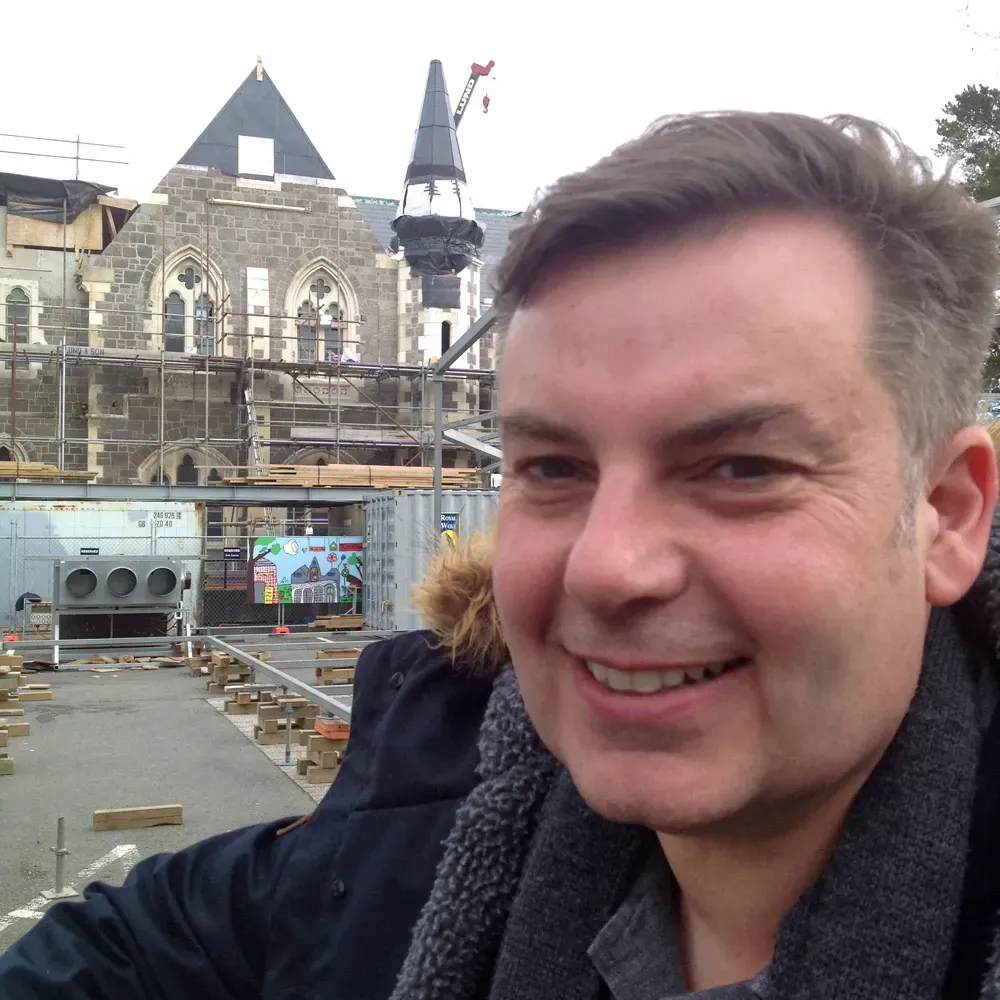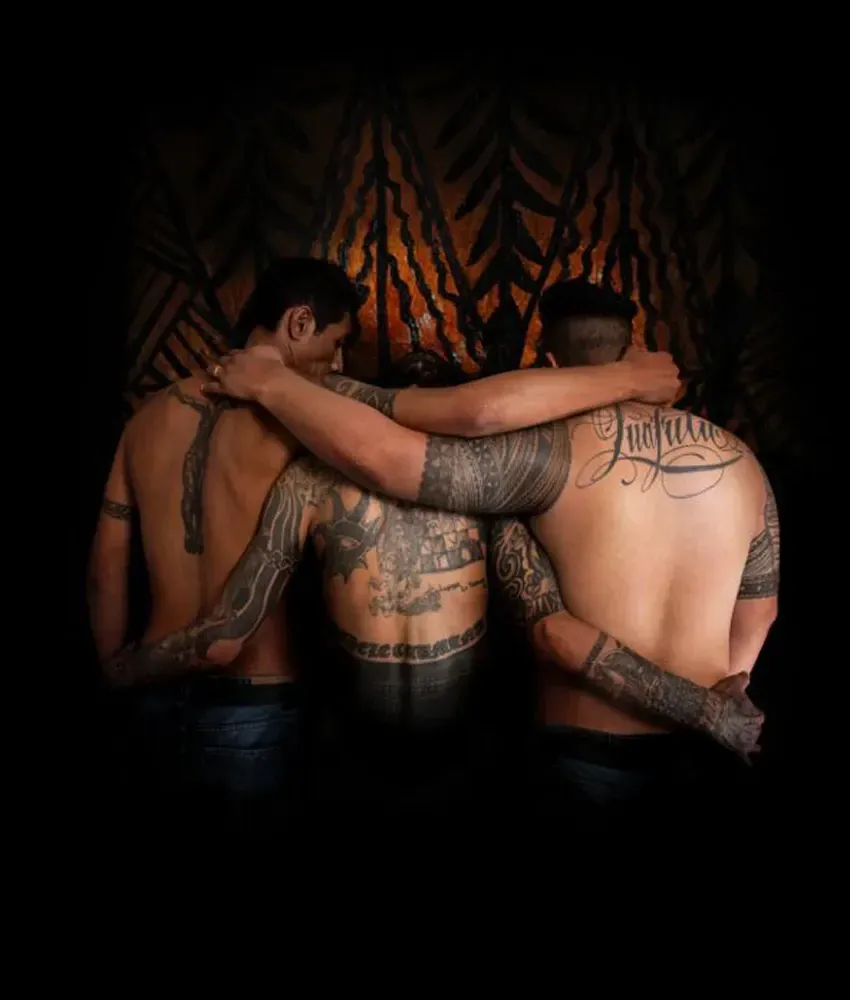Shifting narratives
Written by

As Christchurch Arts Festival prepares to put the spotlight on the city, director Craig Cooper shares with Dione Joseph how the arts contribute to the developing narrative of a changing city, engaging a range of audiences and telling Christchurch stories.
“The key role of the arts is to inform that discussion of what the character of the city is and how that will manifest – and it’s such an exciting time to do this festival because we are playing an active and influential role.”
* * *
Craig Cooper is a Christchurch lad but the city he grew up in is vastly different to the constantly morphing landscape that has returned to as artistic director.
“Christchurch is a city that is constantly redefining itself,” says Cooper, “The Christchurch story is changing on a day-to-day basis and there is an obvious role that the festival needs to play within that context.”
While the title of director may be universally employed to refer to those at the helm of such festivals, Copper takes his role and the responsibilities that go with it very seriously.
“It’s called the Christchurch Arts Festival so I feel my role is to programme a festival that responds to all of the city – not just a certain part of the community. It should be something that, in some meaningful way, can touch everyone.”
This is reflected in the programming which includes a commission of That Bloody Woman and The White Guitar – two uniquely Christchurch stories that speak in very different ways to different narratives that have shaped the city.
“The Kate Sheppard story (That Bloody Woman) is how a woman from Christchurch literally changed the world and she did it from here – right here riding her bicycle around Christchurch,” says Cooper.
But it isn’t a stuffy Victorian drama. In fact, as Cooper points out "the creative team are all young Christchurch artists and are taking a contemporary approach to telling the story as a rock opera musical as opposed to a period drama you might see on the telly on Sunday night."
Similarly, The White Guitar is the story is of rapper Scribe and how he grew up in Christchurch. Cooper is delighted that Wellington based company The Conch have developed this work that offers “an amazingly powerful and distinctly Pasifika perspective but also a distinctly Christchurch one as well that celebrates the diversity of the city.”
The programme itself crosses multiple genres. A range of free events as well as dance, opera, ballet are in good company with works for children and exciting new installations and exhibitions reflecting Cooper’s own tastes and enthusiasm with which he has injected the programme.
But the 2015 festival is not the same as the 2013 or even the 2011 festival. The city is still in recovery and while much of New Zealand is aware of the damage that has been done (structurally but also lack of access and availability of spaces, basic services and resources) the reality of this on a day-to-day basis doesn’t quite strike until you realize the building you saw out your window in the morning might not be there in the evening.
“The city is shifting,” says Cooper. “Obviously geologically and by and large the ground has stopped moving but it’s shifting politically, geographically. New buildings are going up in new areas and old parts are being abandoned; we’re moving culturally and socially as well as economically and that’s exciting from a programming point-of-view because there’s no tried and true way you do anything anymore.”
And with that some of the old stereotypes of Christchurch are also being slowly torn down. The demographic of the city is changing as demand for different jobs increases and Cooper is very cognisant that the narrative is rapidly changing.
“Christchurch probably had the reputation of doing things a certain way and now it has the potential to be one of the most dynamic cities in the country and we can respond to that in an artistic sense and celebrate that difference.”
Part of that difference is also logistical. Restricted by renovation timetables and lack of availability of venues would be the stuff of logistical nightmares but Cooper says the team have been unfazed.
“There is a willingness to get on with things that seems to reflect the spirit of Christchurch at the moment.
“Yes, the venue we thought we had booked for an exhibition turned out to be unavailable due to various construction issues – similarly the Great Hall is still not available and of course the other key venue is the town hall so we have very limited access working around venues but then again that’s just something we work around and everyone does their bit.”
The future of the festival in Christchurch is perhaps at one of its most important turning points. The culture of recovery that the city has been experiencing is ongoing and the festival continues to respond to it – but simultaneously there is also a culture of adaptation and a sense of burgeoning opportunities for the locals and the new groups who now call the city home.
“We have an opportunity as Christchurch Arts Festival to step up in terms of being that gateway to the South Island and yes, welcoming but also showcasing the South island back to the rest of the world in terms of our city and as a city of artists.”
He goes on to add: “The key role of the arts is to inform that discussion of what the character of the city is and how that will manifest – and it’s such an exciting time to do this festival because we are playing an active and influential role.”
The Christchurch Arts Festival is at a distinctly unique moment in the history of not just the festival but of the city – under the stewardship of Cooper it is clear the festival is not merely responding to the changing narrative of the city but writing it as they go.
- Christchurch Arts Festival is on August 27 - September 20 2015

